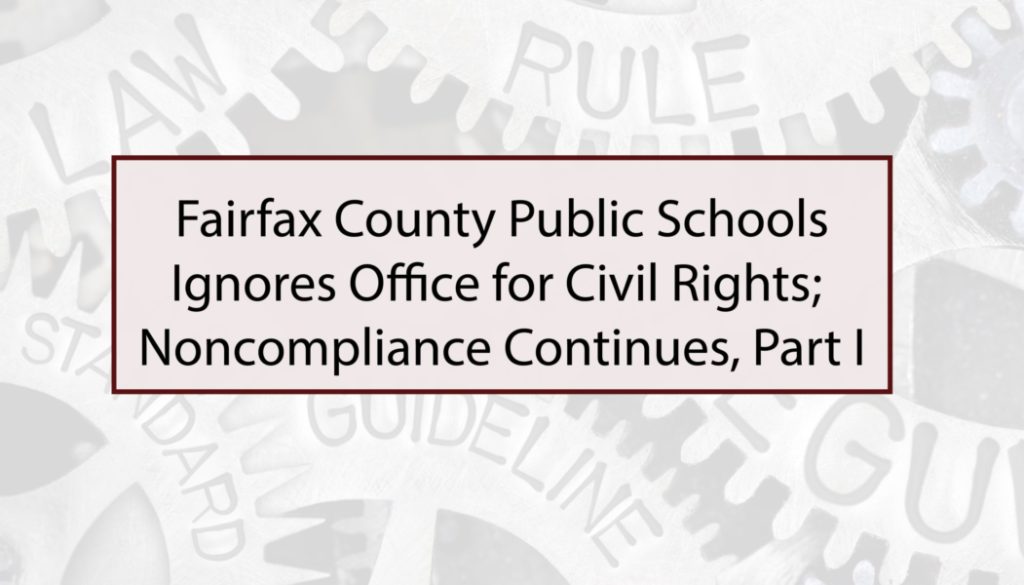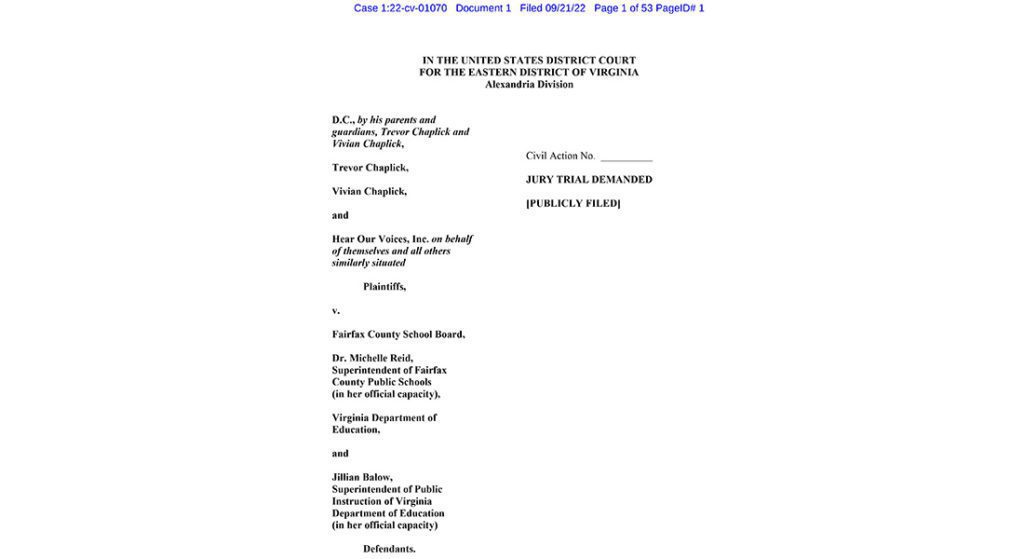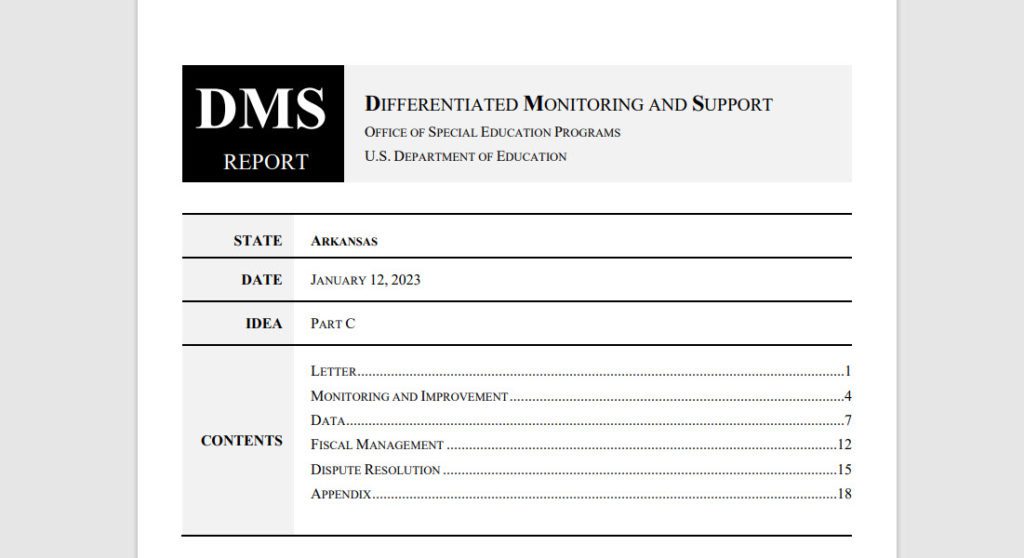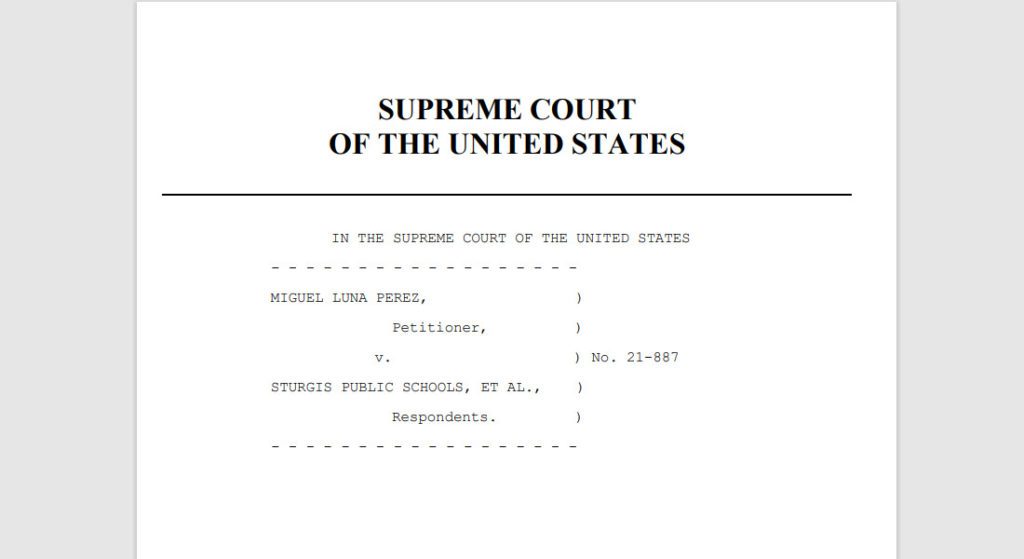U.S. Department of Education Office for Civil Rights FOIA Responses
The Mysterious Case of the Virginia Department of Education Mail (Unexplained Missing Notices of Complaint and Much Much More)
Not long ago, another slice of VDOE mail went MIA after leaving VDOE’s Bermuda Triangle of a mailroom. As happened previously, I contacted VDOE and VDOE said it was sent, and then after some cajoling, VDOE got with the times and emailed it. Given this has happened more than once, I’m beginning to wonder if VDOE is using this as a way to extend its deadlines. Just say something was mailed and wait until the person on the other end asks, “What gives?”—and then at this point either say “oops, mailroom mystery” and remail (or email it), or wait a few more days if the document isn’t completed and send it then. If you’ve experienced this yourself, please let me know. Somethings smells rotten in VDOE land.
The Virginia Department of Education (VDOE) Mail and I tangled for the first time back in 2017.
It was summer, the temperature was skyrocketing, and air conditioners were chugging along like The Little Engine That Could, just trying to make their way through each day. Even the mosquitoes went into hiding.
I was waiting on a response to a state complaint.
That Time I Left an IEP Meeting and Forgot to Grab My Recorder (Which was Still Recording)
About four-and-a-half years ago, I left my recording device in a room when I left. To date, FCPS has yet to address this, other than the time its counsel John Cafferky insinuated during a due process hearing that it was an intentional ham-handed attempt to try to catch FCPS doing something. It wasn’t. FCPS does quite well at screwing up on its own. No need for anyone to try to catch what’s already publicly displayed. However, it played well for John and the hearing officer wouldn’t allow the recording to be used.
I’m still trying to find out what FCPS staff member Heather Bousman-Stanczak meant when she said, “This isn’t a Title IX office and division counsel at this point . . .” If readers have any information, please let me know.
8.15.18:
I attended an IEP meeting.
When I left the meeting room, I accidentally left behind my recorder, which was still recording.
The recorder captured comments by FCPS members of the IEP team (Procedural Support Liaison Program Manager Angelina Prestipino, Procedural Support Liaison Jean Massie, Dyslexia Resources Regional Point of Contact Tracy Puckett, and Assistant Principal Heather Bousman-Stanczak), which they started making immediately after I left the room.
They wasted no time.
FCPS Ignores Office for Civil Rights; Noncompliance Continues, Part I
Yet, not even OCR’s findings, or the fact FCPS entered into a resolution agreement with OCR, seem to have what it takes to put even a temporary stop to FCPS’s noncompliance.
Mediators: Know Who Constitutes an “Impartial Mediator”
Makes you think that the mediator lined up for your mediation will be impartial—and won’t be an employee of the SEA or LEA—right?
That sort of thinking does make sense, but in this Bizarro World of special education regulations and laws and school divisions and lawyers and parents and kids . . . Things don’t always turn out as they should.
Class Action Lawsuit Filed Against Virginia Department of Education and Fairfax County School Board; Alleges Civil Rights Violation of Students Who Have Special Needs
September 21, 2022, a federal class action lawsuit was filed against the Virginia Department of Education (VDOE) and Fairfax County School Board (FCSB), for violations of the rights of students under the U.S. Constitution and the Individuals with Disabilities Act (IDEA). The Civil Rights Clinic of Georgetown Law School, the law firm of Susman Godfrey, LLP (each working pro bono), and Merritt Law, PLLC, collaborated to develop and file the case.
According to the complaint, plaintiffs allege that the Virginia due process hearing officers are not impartial, but in fact, have the worst ruling record of any major state in the entire country with respect to parents who have brought claims under the IDEA.
Dear VDOE: Why Did Sam Hollins Include Incorrect Information in Her Response to U.S. DOE’s Monitoring Letter on Virginia?
January 24, 2023: Article republished with new introduction (see italics below).
Almost three years ago, U.S. Department of Education Office of Special Education Programs issued a Differentiated Monitoring and Support report on Virginia. In response, VDOE issued a ten-page letter from Superintendent of Special Education and Student Services Samantha Hollins, which included false and misleading information.
In the years that have followed, noncompliance has continued in Virginia, as has Samantha’s failure to release a public statement correcting and/or apologizing for the false information in her previous ten-page letter. Within the last two months, VDOE’s failures made the news again when Office for Civil Rights issued two letters of finding for two Virginia agencies: Fairfax County Public Schools and Southeastern Cooperative Educational Programs.
The big question now: Will USDOE eventually pull funding for Virginia as it did for Texas, when Texas hit its post-DMS release three-year mark?
Samantha Hollins Prohibits Recording of Resolution Meeting; Hangs Up on Parent
January 24, 2020, Samantha Hollins, assistant superintendent of VDOE’s Department of Special Education and Student Services, provided incorrect guidance on the recording of resolution meetings.
She first indicated that there is a Virginia regulation prohibiting the recording of resolution meetings.
Not true.
U.S. Dept. of Ed. Finds Arkansas and Michigan in Noncompliance with IDEA
January 12, 2023, OSEP issued differentiated monitoring support (DMS) reports for both states. In addition to including findings of noncompliance, the reports include required actions and timelines by which those actions must occur.
Perez v Sturgis: Will Supreme Court’s Decision Lead to Helping or Harming Students?
The case focuses on 1) whether, and in what circumstances, courts should excuse further exhaustion of the Individuals with Disabilities Education Act’s (IDEA) administrative proceedings under Section 1415(l) when such proceedings would be futile, and 2) whether Section 1415(l) requires exhaustion of a non-IDEA claim seeking money damages that are not available under the IDEA. It is based on the experiences of Miguel Luna Perez, who was denied a Free Appropriate Public Education (FAPE) for years while attending Sturgis (Michigan) Public Schools (SPS).
Heartache and Lies Instead of FAPE
For 12 years, SPS advanced Miguel Luna Perez from grade to grade and inflated his grades to the point he repeatedly made honor roll, even though he couldn’t read or write—and then just before graduation told his family he would receive a certificate of completion but not a high school diploma. His experiences with SPS during those years are heartbreaking.
VFOIA-6763 Response: FCPS’s Recovery Services and/or Comp Ed Records and Practices
1) any forms, letters, or documentation that address FCPS advising parents to pick their own recovery services and/or comp ed provider
2) any forms, letters, or documentation that address FCPS advising parents FCPS will reimburse parents for recovery services and/or comp ed.
3) any forms, letters, or documentation that address FCPS capping the service provider payment amount to a certain amount of dollars per hour and/or per service.
I know the above has already been provided to parents. I’m not asking for their educational records.
I know FCPS has internal records and form letters it developed.
I know that responsive records that are not also educational records exist.
This should include but not be limited to any training materials, slides, videos, presentations, too.
Accommodation Breakdown: Clarification of Directions and Expectations
Imagine one student writes three paragraphs about Chlorine and turns it into the teacher.
Now, imagine the teacher returning the paper back to the student, with red marks noting points taken off and the message, “I expected five sentences per paragraph.”
What happened?
Accommodations Don’t Have a Word Count: Clarity Trumps Word Count When Writing Accommodations
However, pursuant to the Individuals with Disabilities in Education Act and Section 504 of the Rehabilitation Act of 1973, the unique needs of students must be addressed.
In other words: Clarity and ensuring the unique needs of the child are met is more important than word count.











